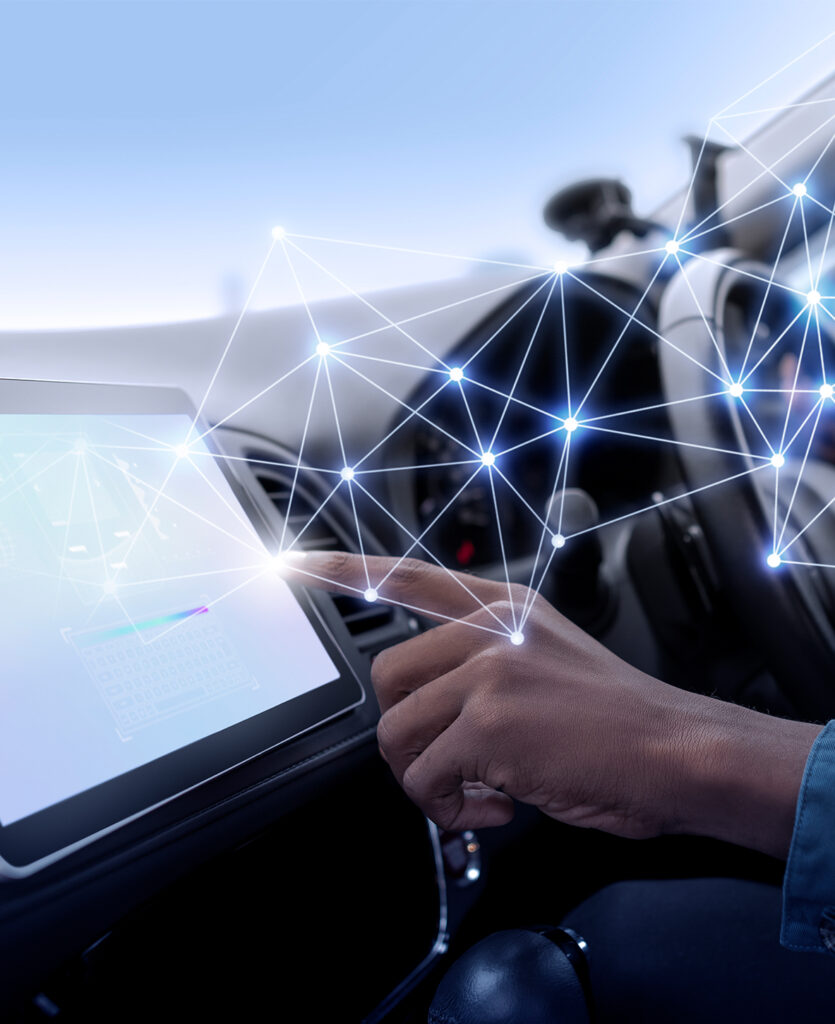The advent of autonomous vehicles (AVs) marks a significant milestone in the evolution of transportation. These self-driving cars, powered by the advances in technology, promise to revolutionize how we perceive and experience mobility. This article explores the key technological advancements behind AVs, their potential impact on society, and the challenges that lie ahead in achieving a fully autonomous future.
Advancements in the Technology Sector
Autonomous vehicles are the culmination of various technological innovations that work in tandem to enable self-driving capabilities. The primary technologies include:
- Artificial Intelligence (AI) and Machine Learning (ML)
- AI and ML are at the core of AV technology, allowing vehicles to learn from vast amounts of data and make real-time decisions. These technologies enable vehicles to recognize patterns, predict behaviors, and navigate complex environments.
- Sensors and Lidar
- AVs rely on an array of sensors, including radar, lidar, and cameras, to perceive their surroundings. Lidar (Light Detection and Ranging) is particularly crucial, as it provides high-resolution, 3D maps of the environment, allowing for precise object detection and distance measurement.
- Advanced Connectivity
- Vehicle-to-Everything (V2X) communication systems enable AVs to interact with other vehicles, infrastructure, and pedestrians. This connectivity enhances situational awareness and allows for coordinated movements, improving safety and efficiency.
- High-Performance Computing
- The processing power required for AVs to analyze data and make split-second decisions is immense. High-performance computing systems are essential for handling the vast amount of information gathered by sensors and ensuring the vehicle’s responsiveness.
Impact on Society
The widespread adoption of autonomous vehicles has the potential to transform various aspects of society:
- Safety Improvements
- One of the most significant benefits of AVs is the potential to reduce traffic accidents caused by human error. With advanced sensors and decision-making capabilities, AVs can react faster and more accurately than human drivers, potentially saving thousands of lives each year.
- Traffic Efficiency and Reduced Congestion
- Autonomous vehicles can optimize routes, maintain consistent speeds, and reduce stop-and-go traffic, leading to smoother traffic flow and reduced congestion. This efficiency can also result in lower fuel consumption and reduced emissions.
- Accessibility and Mobility
- AVs can provide greater mobility for individuals who are unable to drive, such as the elderly and disabled. This increased accessibility can enhance the quality of life for many and promote greater independence.
- Economic Impact
- The shift to autonomous vehicles will create new industries and job opportunities while disrupting existing ones. Sectors such as automotive manufacturing, logistics, and urban planning will undergo significant changes, requiring adaptation and innovation.
Challenges and Considerations
Despite the promising potential of autonomous vehicles, several challenges must be addressed to achieve widespread adoption:
- Regulatory and Legal Frameworks
- The development of comprehensive regulations and legal frameworks is essential to ensure the safe deployment of AVs. Governments must work collaboratively with industry stakeholders to establish standards and address liability issues.
- Cybersecurity
- As AVs become increasingly connected, they are vulnerable to cyber-attacks. Ensuring robust cybersecurity measures are in place is critical to protect vehicles from hacking and safeguard user data.
- Public Acceptance and Trust
- Building public trust in autonomous vehicles is crucial for their adoption. This requires transparent communication about the technology’s capabilities and limitations, as well as demonstrating reliability and safety through rigorous testing.
- Infrastructure Adaptation
- Existing infrastructure must be adapted to support AVs. This includes updating roadways, traffic signals, and urban planning to accommodate the unique needs of autonomous vehicles and ensure seamless integration into current transportation systems.

Related Article: TOP 10 CYBERSECURITY TRENDS SHAPING 2024 AND BEYOND
MOZANTECH: Leading the Way to a Smarter Mobility Future
The era of autonomous vehicles heralds a new chapter in the history of mobility, driven by technological advancements that promise to redefine how we travel. The transformative potential of AVs lies not only in their ability to reduce traffic accidents and improve traffic efficiency but also in their capacity to enhance accessibility and generate new economic opportunities. As technology continues to evolve and societal acceptance grows, autonomous vehicles are set to transform our world, paving the way for a future where mobility is smarter, safer, and more inclusive.
However, the journey towards widespread adoption of autonomous vehicles is fraught with challenges. Regulatory frameworks need to be robust and adaptive, cybersecurity measures must be stringent, and public trust must be cultivated through transparent communication and rigorous testing. Moreover, the existing infrastructure requires significant adaptation to support the seamless integration of AVs into our transportation systems.
This is where MOZANTECH, a leading IT consultancy, plays a pivotal role. Specializing in cutting-edge technology solutions, MOZANTECH is at the forefront of helping businesses and governments navigate the complexities of integrating autonomous vehicle technology. With expertise in AI, machine learning, and advanced connectivity solutions, MOZANTECH provides the necessary tools and strategies to address the multifaceted challenges associated with autonomous vehicles.
Click and Discover The IT Jobs Available
MOZANTECH’s consultancy services include developing and implementing cybersecurity protocols to protect AVs from potential threats, advising on regulatory compliance to ensure safe deployment, and offering innovative solutions for infrastructure adaptation. By leveraging their deep industry knowledge and technical expertise, MOZANTECH helps stakeholders harness the full potential of autonomous vehicles, ensuring a smooth transition to this new era of mobility.
In conclusion, the future of mobility is being redefined by the advent of autonomous vehicles, and the path to widespread adoption is being paved by forward-thinking IT consultancies like MOZANTECH. As we move towards a world where self-driving cars become commonplace, the collaboration between technology experts and industry stakeholders will be crucial in realizing the vision of a smarter, safer, and more efficient transportation ecosystem. With MOZANTECH’s guidance, the journey towards this transformative future is not only possible but also promisingly within reach.









